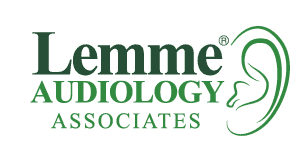Dual Sensory Loss may be a new term to you. It may even be something you or a family member is experiencing but you didn’t know it had a name. Well, Dual Sensory Loss is the term used when an individual experiences a decline in both their hearing and vision.
The most populated category of Dual Sensory Loss is those with a mild to moderate impairment in both vision and hearing. Other categories consist of those who are deaf and have impaired vision as well as those who are blind and have impaired hearing.
An individual with hearing loss relies on visual cues such as looking at the mouth of the person speaking and also relying on facial movements and expressions. Many people with hearing loss are not even aware of how much they rely on their vision when having a conversation with someone until their vision becomes impaired. Age-related macular degeneration (AMD) is a common condition for vision loss for people aged 50 and older. While AMD will not cause complete blindness, it does blur one’s central vision. As AMD progresses, individuals may eventually see just a blank spot in their central vision.
As you can see from above, the early and intermediate stages of AMD can give someone with a hearing loss significant difficulty reading facial cues. An individual with hearing loss and advanced AMD may not be able to rely on facial cues at all.
Dual Sensory Loss can have a significant negative impact on one’s life. Not only can it cut an individual off from interacting with others, new research has indicated that Dual Sensory Loss doubled the risk of dementia. Professor Jason Warren at University College London states “We see and hearing with our brains, and the first sign of a failing brain in dementia may well be an inability to navigate the complex sensory environments of everyday life.”
Taking care of your hearing and vision health is an important component of decreasing the negative side effects that come along with Dual Sensory Loss. Visiting your Optometrist annually is a good way to learn preventative steps in decreasing the progression of eye diseases and to also monitor their progression. Annual visits to your Ophthalmologist are needed to treat eye diseases to lessen their impact on your life. Also, annual visits to your Audiologist are needed to track your hearing health and to treat your hearing loss to lessen the side effects that a hearing impairment can cause.
To discover what options you have for treating your hearing loss, or to schedule your annual wellness hearing screening, call Lemme Audiology Associates at (814) 941-7770.
Information Sources :
https://www.nei.nih.gov/learn-about-eye-health/eye-conditions-and-diseases/age-related-macular-degeneration
https://www.ncbi.nlm.nih.gov/pmc/articles/PMC4111532/
https://miro.medium.com/max/2400/1*Pq_21pJ9liB66QyTVpLKeA.jpeg


